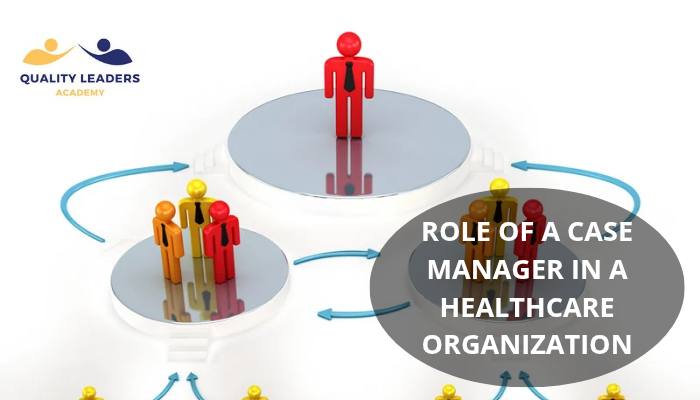In the evolving healthcare landscape, the role of a case manager in a healthcare organization has become increasingly important. Case managers serve as the linchpin for coordinating care, improving patient outcomes, and optimizing the use of healthcare resources. Their work ensures that patients receive appropriate, timely, and cost-effective care throughout their healthcare journey.
WHAT DOES A CASE MANAGER DO IN HEALTHCARE?

A case manager is responsible for assessing patient needs, planning individualized care, coordinating services, and monitoring progress to ensure quality care delivery. Their role involves collaborating with physicians, nurses, social workers, insurers, and families to bridge gaps in care and avoid unnecessary delays or duplications.
Key Responsibilities Include:
- Conducting thorough assessments of patient health status and social needs.
- Developing personalized care plans that align with patient goals and medical guidelines.
- Coordinating treatments and interventions among multiple providers.
- Ensuring a smooth transition from hospital discharge to home-based care.
- Monitoring patient adherence to treatment and adjusting plans as necessary.
- Navigating insurance approvals and financial support mechanisms.
- Connecting patients with community resources and support networks.
- Ensuring compliance with healthcare regulations and quality standards.
IMPORTANCE OF CASE MANAGEMENT IN HEALTHCARE ORGANIZATIONS
Healthcare systems face growing pressures due to increasing chronic diseases, aging populations, and rising costs. Effective case management plays a pivotal role in addressing these challenges by enhancing care quality, reducing hospital readmissions, and improving resource utilization.
Benefits of Case Management:
Improved Patient Outcomes:
Case managers provide continuous oversight, reducing medical errors and preventing complications through proactive care coordination.
Cost Savings:
By preventing unnecessary hospital stays and redundant tests, case management reduces healthcare expenses for patients and providers.
Enhanced Patient Satisfaction:
Patients receive personalized attention and clear communication, which lowers anxiety and improves adherence to treatment plans.
Better Population Health:
Case managers identify high-risk groups and promote preventive care, contributing to healthier communities.
ESSENTIAL SKILLS AND QUALIFICATIONS FOR HEALTHCARE CASE MANAGERS
Case managers usually come from clinical backgrounds such as nursing, social work, or healthcare administration. In addition to clinical expertise, successful case managers demonstrate excellent communication, critical thinking, and organizational abilities.
Certification programs like the Certified Professional in Healthcare Quality (CPHQ) provide specialized training in quality management, data analysis, and patient safety, which are essential for effective case management.
Core Skills Include:
- Excellent interpersonal and communication skills for engaging patients and care teams.
- Ability to analyze clinical data to monitor patient progress and outcomes.
- Knowledge of healthcare policies, insurance processes, and regulatory requirements.
- Time management and multitasking abilities to handle complex caseloads.
- Skilled in using electronic health records (EHR) and specialized case management software to streamline care coordination.
HOW CPHQ CERTIFICATION ENHANCES CASE MANAGEMENT
The CPHQ certification is recognized globally as a benchmark for healthcare quality professionals. It equips case managers with advanced knowledge of healthcare quality principles, performance improvement techniques, and patient safety protocols.
Certified case managers are better prepared to:
- Implement evidence-based practices.
- Lead quality improvement initiatives within healthcare organizations.
- Navigate regulatory compliance effectively.
- Utilize data analytics for informed decision-making.
QUALITY LEADERS ACADEMY CPHQ COURSES

Quality Leaders Academy offers comprehensive CPHQ preparation courses that cover essential topics related to case management and healthcare quality. These courses are designed to provide practical insights and prepare candidates for successful certification.
CPHQ courses offer flexible learning options and expert guidance, helping healthcare professionals sharpen their skills and advance their careers.
CHALLENGES FACED BY CASE MANAGERS
Case managers often navigate complex patient needs, resource constraints, and regulatory hurdles. Some common challenges include:
- Managing patients with multiple chronic conditions requires the coordination of various specialists.
- Addressing social determinants of health, such as housing, transportation, and family support.
- Balancing administrative responsibilities with direct patient engagement.
- Dealing with insurance authorization delays or coverage limitations.
Continuous education, such as the CPHQ courses at Quality Leaders Academy, helps case managers stay updated on best practices and develop strategies to overcome these obstacles.
Case Management Tools and Technologies
Modern case managers rely on digital tools to improve efficiency and coordination. Electronic health records (EHR), case management software, and data analytics platforms enable real-time information sharing and tracking of patient outcomes.
These technologies facilitate:
- Seamless communication among care team members.
- Automated alerts for follow-ups and medication management.
- Comprehensive reporting for quality improvement initiatives.
- Identification of high-risk patients for targeted interventions.
THE FUTURE OF CASE MANAGEMENT IN HEALTHCARE
As healthcare embraces value-based care and patient-centered models, the role of case managers will expand. Advanced analytics, telehealth, and integrated care platforms will empower case managers to deliver personalized care at scale.
Healthcare organizations investing in professional development and certifications such as CPHQ will be better equipped to meet evolving demands. Certified case managers will play a leading role in improving population health, enhancing patient safety, and driving quality improvements.
The role of a case manager in a healthcare organization is essential to delivering coordinated, high-quality care that meets patient needs and organizational goals. By assessing needs, developing care plans, and coordinating services, case managers help improve outcomes and reduce costs. Pursuing certifications like CPHQ through Quality Leaders Academy’s tailored courses strengthens the skills and knowledge required for this critical role.
For healthcare professionals aiming to advance in case management and healthcare quality, enrolling in the CPHQ courses offered by Quality Leaders Academy is a highly recommended step toward professional excellence and improved patient care.
Resources:
https://www.ncbi.nlm.nih.gov/books/NBK562214/
https://cmsa.org/who-we-are/what-is-a-case-manager/
https://brooksrehab.org/resources/what-role-do-case-managers-play-in-patient-care/



